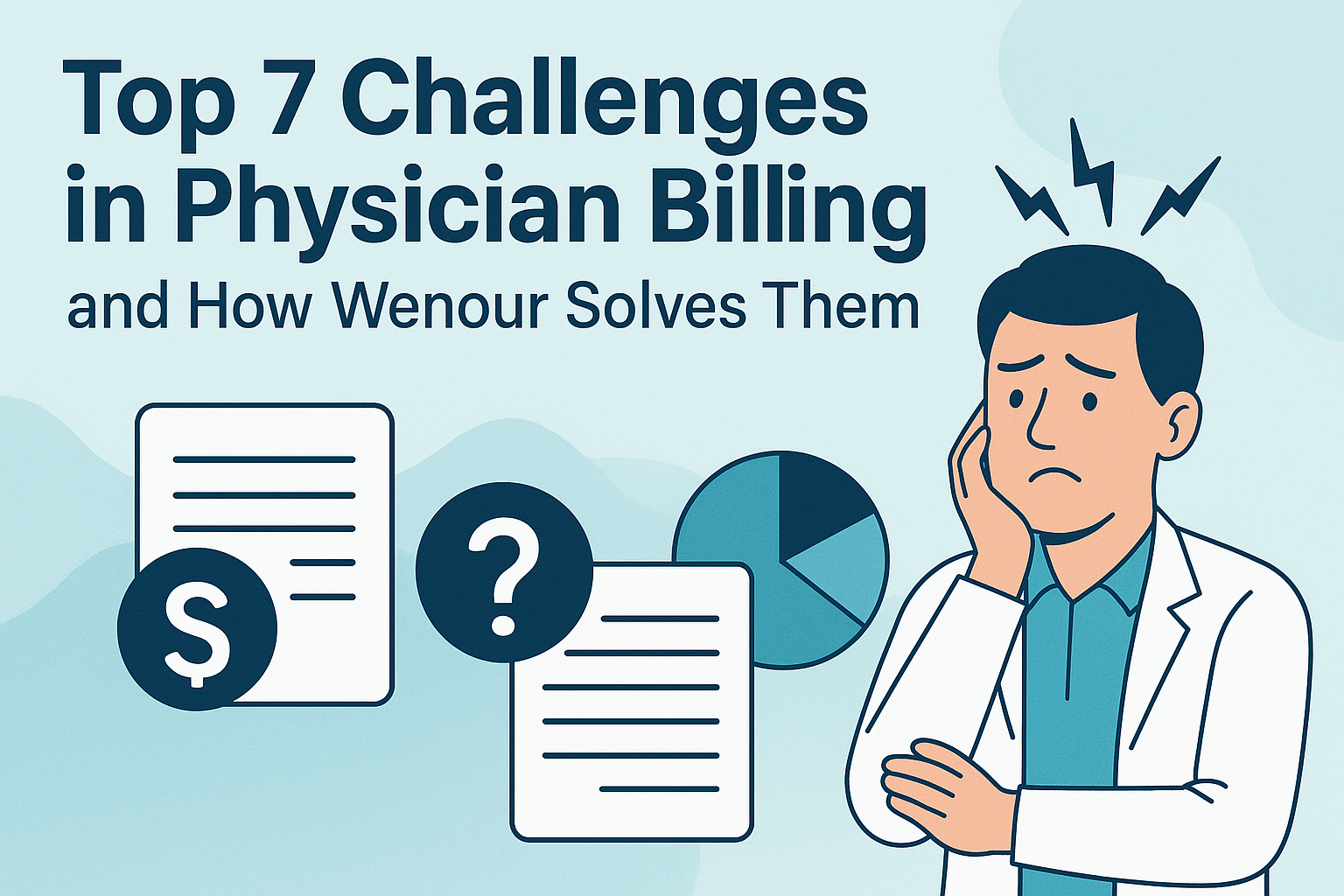
Proven Denial Management Methods for DME Billing Success

Denial management emerges as a crucial component to ensure the financial health of healthcare practices, especially those dealing with Durable Medical Equipment (DME) billing. Denial management’s importance cannot be overstated, as it directly impacts revenue cycle management, reimbursement rates, and the overall efficiency of medical billing processes. With the rise of electronic claims and the intricate requirements for prior authorization and remittance advice, healthcare providers are increasingly seeking effective strategies to minimize denials and optimize their claim approval rates. Addressing denial management head-on not only aids in reducing coding errors and improving claim status tracking but also plays a pivotal role in identifying and rectifying the root causes of denials, thereby enhancing revenue streams and safeguarding the financial viability of healthcare practices.
This article aims to explore proven denial management methods that healthcare providers can employ to achieve DME billing success. Beginning with the establishment of a strong denial management strategy, the discussion will extend to developing clear and consistent processes tailored to tackle challenges surrounding medical billing and coding errors. Further, it will delve into the utilization of advanced billing tools and software designed to streamline revenue cycle management, conduct regular audits for effective remittance advice analysis, and foster a culture of accountability within billing teams. Additionally, we will discuss the significance of seeking expert assistance to navigate the complexities of reimbursement and prior authorization processes efficiently. Through this comprehensive exploration, healthcare providers will gain insights into effective denial management practices that promise to enhance their reimbursement rates and ensure sustainable financial performance.
Establishing a Strong Denial Management Strategy
Importance of Denial Management
In the realm of medical billing, particularly for Durable Medical Equipment (DME), establishing a robust denial management strategy is paramount. Denial management not only simplifies the complex scope of handling claim denials but also significantly enhances the financial health of healthcare practices. By integrating sophisticated technology and skilled claims professionals, healthcare organizations can manage health plans, price schedules, and coding combinations more effectively. These measures ensure higher patient visibility and reduce staff errors through automated workflows, which in real-time, identify and address both full and partial payer denials.
A strong denial management strategy is essential for maximizing revenue and ensuring that healthcare providers are accurately reimbursed for their claims. Ineffective denial management can lead to denied claims, delayed payments, and substantial revenue loss. With the increasing complexity of healthcare billing and reimbursement, it is crucial to implement effective strategies that manage claims denials efficiently.
Steps to Implement
Team Formation: Establishing an effective denial management strategy begins with forming a dedicated team comprising members from billing, coding, clinical operations, and finance. This team should regularly review denial trends, identify the root causes of denials, and implement corrective actions to prevent future occurrences.
Utilization of Technology: Automating the denial management process can significantly expedite the identification and resolution of denials. Automated systems can pinpoint denials based on specific criteria such as coding errors or missing documentation, thus reducing the need for manual reviews and enhancing overall efficiency.
Data Analysis: Tracking and analyzing denial data across various attributes—type of denial, the payer, and the reason for the denial—is crucial. This analysis helps in identifying trends and implementing corrective actions to mitigate future denials. Additionally, continuous evaluation of internal workflows and ongoing staff training ensure that all team members are up-to-date with the latest practices in denial management.
Appeals Process: Establishing a well-defined appeals process is critical. This process should include clear guidelines for submitting appeals and a timeline for resolution. Tracking appeals data to identify trends and implementing corrective actions based on this data can further enhance the effectiveness of the denial management strategy.
Continuous Improvement: Denial management is an ongoing process that requires continuous monitoring and improvement. Regularly reviewing denial data, identifying trends, and implementing corrective actions are essential steps in optimizing revenue and improving the efficiency of the billing and reimbursement process.
By adhering to these steps and leveraging the capabilities of companies like Wenour, which specialize in medical billing, healthcare providers can significantly reduce denials, enhance reimbursement rates, and maintain a sustainable financial position. Wenour’s expertise in denial management ensures that healthcare practices not only survive but thrive in the challenging landscape of medical billing.
Developing Clear and Consistent Processes
Standardizing Billing Procedures
Developing clear and consistent processes in DME billing is crucial for ensuring that healthcare providers receive appropriate reimbursement and comply with healthcare regulations. By standardizing billing procedures, organizations can reduce the risk of claim denials and accelerate claims processing. This involves meticulous documentation and adherence to specific coding guidelines, which are essential for preventing payment delays or rejections.
Moreover, integrating DME billing systems with other healthcare IT systems promotes interoperability and streamlines information exchange. This not only enhances patient care coordination but also supports financial sustainability by managing costs associated with equipment procurement, maintenance, and distribution.
Implementing Checklists
To further refine the billing process and minimize errors, implementing checklists is a recommended strategy. Checklists serve as a critical tool in ensuring that all necessary information is complete and accurate before claim submission. This step is vital as missing information triggers approximately 60% of medical billing denials. A well-designed checklist can help in maintaining the fullest level of specificity in coding and ensuring that all identifiers and modifiers are correctly applied, thus lowering denial rates.
Additionally, regular updates and training for the billing staff on the latest insurance requirements and coding standards are imperative. These practices not only keep the team informed but also significantly reduce the frequency of billing errors. Regular audits and reviews of the billing process are equally important, as they help identify recurring problems and facilitate continuous improvement.
By adhering to these structured processes and leveraging the expertise of specialized medical billing companies like Wenour, healthcare providers can achieve higher efficiency in DME billing. Wenour’s proficiency in managing complex billing requirements ensures that healthcare practices can focus more on patient care while optimizing their revenue cycle management.
Utilizing Advanced Billing Tools and Software
Benefits of Claim Scrubbers
Claim scrubbers play a pivotal role in enhancing the accuracy and efficiency of medical billing processes. These sophisticated software systems systematically analyze medical claims to identify and rectify errors, inaccuracies, and inconsistencies before submission to insurance payers. By employing a series of algorithms and rules, claim scrubbers scrutinize claims and flag potential issues that may lead to denials, rejections, or payment delays. This comprehensive quality control measure ensures claims adhere to payer guidelines, medical coding standards, and regulatory requirements, significantly reducing the chances of claim denials and optimizing revenue generation for healthcare providers.
Integrating Technology Solutions
The integration of advanced technology solutions such as Artificial Intelligence (AI) and blockchain in DME billing has revolutionized the way billing and coding operations are managed. AI algorithms are employed to automate the prior authorization process, reducing wait times and enhancing patient satisfaction by ensuring timely access to necessary DME. Additionally, AI-driven systems like Computer-Assisted Coding (CAC) assist in assigning accurate billing codes, minimizing human errors and improving reimbursement accuracy.
Blockchain technology offers another layer of security and efficiency. Its advanced encryption techniques protect sensitive patient information, while its immutability ensures that billing data cannot be altered, providing a reliable and transparent billing process. This technology also allows all parties involved in the billing process to access the same information, which reduces disputes and enhances trust among stakeholders.
Furthermore, the use of Robotic Process Automation (RPA) and integration with Enterprise Resource Planning (ERP) systems streamline repetitive tasks such as data entry and claim submissions. These integrations not only reduce processing times and operational costs but also improve the overall financial health by minimizing discrepancies and errors in billing.
By leveraging these advanced technologies, healthcare providers can ensure more efficient operations and better financial outcomes. Companies like Wenour specialize in integrating these technological solutions into healthcare practices, enhancing DME billing processes and ensuring that providers can focus more on patient care while managing the financial aspects effectively.
Conducting Regular Audits
Purpose of Internal Audits
Internal audits serve as a crucial mechanism for healthcare practices to ensure the accuracy and compliance of their medical billing processes. These audits, whether conducted internally by dedicated teams or externally by specialized firms, are designed to scrutinize the entire billing cycle—from eligibility verification and demographic data capture to claims submission and payment posting. By regularly performing these audits, practices can identify discrepancies and inconsistencies early, allowing for timely corrections that prevent revenue leakage and enhance financial stability.
Regular internal audits, performed monthly, quarterly, or annually based on the volume of cases and organizational needs, help maintain coding accuracy and adherence to compliance guidelines. They also provide an opportunity for ongoing education and training for the coding staff, ensuring that they are up-to-date with the latest coding standards and practices.
Identifying and Correcting Errors
The primary goal of conducting audits is to identify and correct errors that can lead to claim denials and revenue loss. Common issues uncovered during audits include incorrect coding, insufficient documentation, and non-compliance with payer policies. For example, if the medical documentation submitted indicates a different code than the one billed, or if services are provided by someone other than the billing provider, claims are likely to be rejected.
To address these issues, healthcare practices must implement corrective actions based on audit findings. This might involve retraining staff on proper coding practices, updating billing software to prevent common errors, and enhancing communication between clinical and billing departments to ensure that changes in patient care are accurately reflected in billing documents.
Furthermore, regular audits allow healthcare providers to stay abreast of changes in CMS regulations and ensure that their billing practices are compliant with evolving healthcare laws and policies. This proactive approach not only minimizes the risk of claim denials but also positions the practice for better financial performance and improved patient care outcomes.
By leveraging the expertise of companies like Wenour, which specialize in medical billing and coding, healthcare providers can enhance their denial management strategies. Wenour’s comprehensive services help streamline the audit process, ensuring that all aspects of billing and coding are handled efficiently and accurately. This support allows healthcare providers to focus more on patient care while trusting that their financial operations are optimized for success.
Fostering a Culture of Accountability
Roles and Responsibilities
In fostering a culture of accountability within Durable Medical Equipment (DME) billing, clearly defined roles and responsibilities are essential. Healthcare providers must ensure that each member of the billing and clinical teams understands their specific duties in the billing process. This clarity helps in maintaining meticulous documentation of medical necessity and adherence to coding standards, which are crucial for timely and accurate reimbursements. Moreover, regular training sessions are vital to keep the staff updated on the latest industry changes, compliance requirements, and best practices, thus minimizing errors and enhancing overall efficiency.
Effective collaboration between billing and clinical teams is another critical component. Open communication channels enable the billing team to stay informed about any changes to patient care plans, ensuring accurate billing of services rendered. This not only maximizes revenue but also improves the operational efficiency of medical practices.
Building a Proactive Team
Building a proactive team involves more than just training; it requires continuous engagement and empowerment of the team members. Practices should invest in technology to automate billing processes, which reduces the likelihood of errors and ensures timely submissions. Additionally, fostering an environment where team members are encouraged to communicate openly about challenges and successes in the billing process can lead to more effective problem-solving and innovation.
Patient education and engagement are also integral to a proactive team. By clearly communicating with patients about insurance coverage, out-of-pocket expenses, and the importance of providing accurate information, billing disputes can be minimized. Empowered and informed patients are more likely to adhere to recommended treatments, which leads to better health outcomes and smoother billing processes.
Moreover, a proactive team anticipates changes and adapts quickly. This agility can be supported by robust technology solutions that streamline billing processes and enhance data accuracy. Companies like Wenour specialize in providing such advanced billing tools and software, ensuring that DME billing teams can focus more on patient care while managing financial operations effectively. By leveraging these resources, healthcare providers can maintain a culture of accountability that supports sustainable financial performance and high-quality patient care.
Seeking Expert Assistance
Benefits of Outsourcing
Outsourcing Durable Medical Equipment (DME) billing offers substantial advantages for healthcare providers. By delegating the intricate and time-consuming tasks of billing to specialized outsourcing partners, medical professionals can focus more on patient care and treatment, thereby enhancing operational efficiency. This shift not only allows healthcare staff to dedicate more resources to patient services but also leads to significant cost savings. Healthcare organizations can avoid the high expenses associated with staffing, training, and maintaining an in-house billing department. Moreover, outsourcing provides access to the latest industry expertise and technological advancements, ensuring accurate, compliant billing practices and faster reimbursement processes.
Working with Billing Experts
Choosing the right DME billing partner, like Wenour, is crucial for healthcare providers aiming to optimize their financial outcomes. Companies such as Wenour bring a wealth of experience and a dedicated team that is well-versed in CMS guidelines and regulations. This expertise helps in timely claim filing and maximizes reimbursements, thereby enhancing productivity and reducing denials. Furthermore, the use of advanced billing software and technologies by these outsourcing firms ensures a reduction in billing errors and compliance risks, leading to smoother financial operations and better cash flow management.
By partnering with expert billing services, healthcare providers not only streamline their revenue cycle management but also gain the ability to scale their services according to their growth and patient needs. Outsourcing billing processes allows for more flexible resource allocation, enabling providers to expand their services without the constraints of administrative burdens. Additionally, these partnerships can provide continuous support and consultation, ensuring that billing practices evolve in alignment with industry standards and regulations, thus safeguarding healthcare practices against compliance pitfalls and financial discrepancies.
In conclusion, leveraging the expertise of specialized DME billing companies like Wenour can significantly enhance the financial and operational performance of healthcare providers, allowing them to focus more on delivering high-quality patient care.
Conclusion
The exploration of denial management practices and advanced billing solutions throughout this article underscores the pivotal role they play in navigating the complexities of DME billing and ensuring the financial health of healthcare providers. By establishing clear and consistent processes, leveraging technology, and fostering a culture of accountability, healthcare practices can significantly reduce denials, streamline operations, and enhance revenue generation. Furthermore, the strategic partnership with specialized billing companies, specifically the integration of Wenour’s services, offers invaluable expertise and technology solutions that promise to elevate the efficiency and effectiveness of medical billing operations.
In reflecting on the merits of outsourcing billing processes, it becomes evident that companies like Wenour not only streamline the revenue cycle management but also empower healthcare providers to sharpen their focus on patient care, by harnessing the latest in billing technology and expertise. The significance of adopting comprehensive denial management strategies, coupled with the support of expert billing services, cannot be overstated in its capacity to transform financial outcomes for healthcare practices. As the healthcare sector continues to evolve, the integration of these practices will be paramount in navigating the challenges of DME billing, ensuring that providers are well-positioned for financial success and continued growth.
FAQs
1. What strategies can be employed to minimize denials in medical billing?
To reduce denials in medical billing, it is crucial to verify insurance coverage and patient eligibility, collect accurate and complete patient information, ensure referrals and authorizations are in place, verify medical necessity, maintain accurate coding, stay informed about pandemic-related billing updates, and thoroughly understand the rules of each payer.
2. What are the top three errors in claims submissions that lead to denials?
The three most common mistakes in medical claims that result in denials are: the claim not being specific enough, the claim missing essential information, and the claim not being filed within the required time frame.
3. How can claims denial management be effectively described?
Effective claims denial management involves a comprehensive process of identifying, reviewing, and resolving denied claims. This strategic approach aims to pinpoint the reasons behind denials and implement measures to prevent such issues from recurring in the future.
4. What are the steps to successfully challenge an insurance claim denial?
To appeal a health insurance claim denial successfully, follow these steps: Firstly, understand the reason behind the denial. Communicate with your insurance provider and your doctor’s office. Gather the necessary documentation, submit an internal appeal, wait for a response, and if needed, proceed to submit an external review. Lastly, make sure to review your plan coverage to understand your entitlements.























